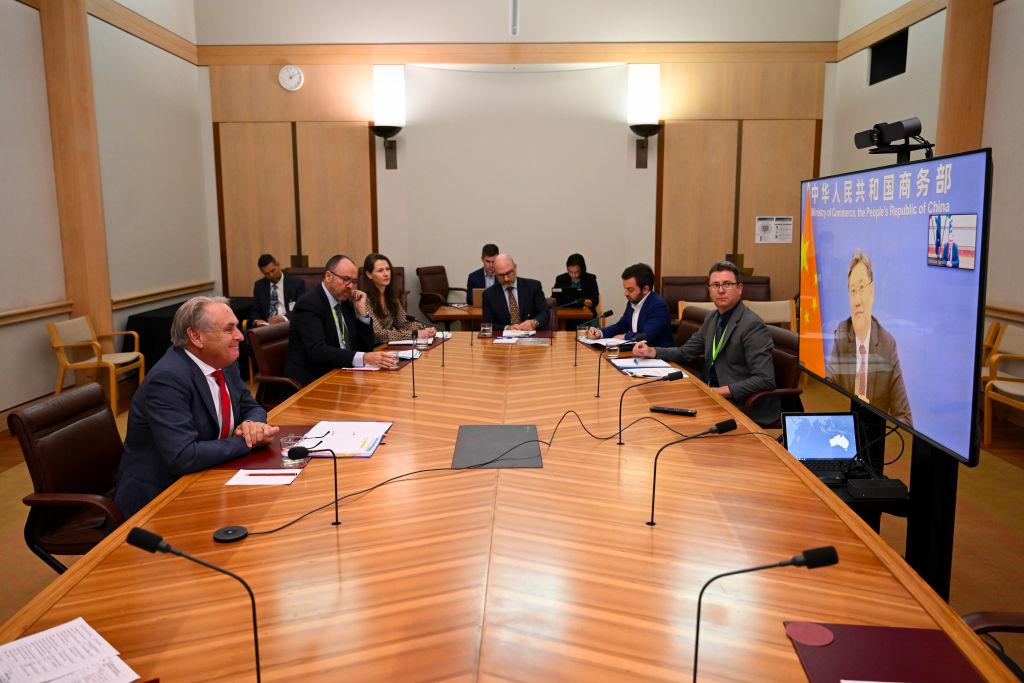Australia and China have held a meeting between trade ministers for the first time in three years as the two sides seek to resume the normal trade relationship after a period of tension.
On Feb. 6, Australian Trade Minister Don Farrell joined a virtual meeting with Chinese Commerce Minister Wang Wentao to discuss the removal of China’s trade restrictions on many key commodities of Australia.





